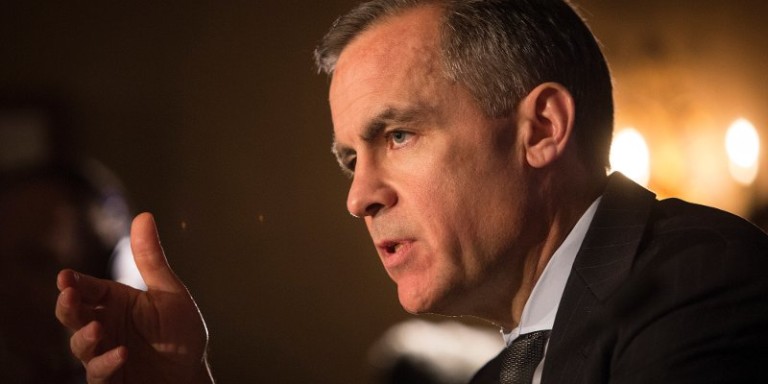
Industry figures have been reacting to the interest rate rise that was announced by the Bank of England at noon today.
Jonathan Sealey, chief executive at Hope Capital, believes that the rate rise is an shows the amount of pressure the Bank of England are under.
Sealey said: “Today’s announcement shows the pressure the Bank of England is under to curb inflation whilst Brexit negotiations continue to weigh heavy on the economy.
"At a time when mortgage completion times are increasing, and the need for traditional bridging is growing, the disparity between mainstream rates and bridging rates from private lenders will be lower.”
Benson Hersch, chief executive of the ASTL, welcomes the rise.
He adds: “Although the interest rate rise has been on the cards for some time, I’m glad that the Bank of England has finally woken up to the need to tackle this problem.
"Consumers will clearly be concerned about what the rise means for them but from a positive perspective it should help stabilise the exchange value of the Pound; at least until the next bout of bad Brexit news.
"Bridging lenders are unlikely to change their pricing structure, but will look carefully at how the long term market reacts. In addition, other factors, such as changes to stamp duty; have had a more significant impact on property prices than this rate rise is likely to have, so the market is likely to weather this storm.”
Steven Cook, structured property finance at Investec, concurs.
He says: “Today’s interest rate rise is likely to be welcomed by some in the real estate sector and reflects the wider optimism around the UK’s economic outlook.
"Market uncertainty has impacted both the residential and commercial development pipeline in London and the South East, which have been stuck in limbo since last year’s EU referendum, and if this measure can bring down inflation, particularly in construction costs, this is good news.
“Whilst the weak pound has helped support the UK commercial property market, this is unsustainable and a stronger currency will, in the long-term, support development activity across the UK.
"What today’s decision doesn’t address is the ongoing Brexit uncertainty which is impacting large parts of the UK real estate market, whether it be student accommodation, City of London office investment or the shortage of suitable housing.”
Andrew Turner, chief executive at Commercial Trust Limited, encourages more calm.
“Now is not the time to make rash decisions, more so it is a time for calm reflection and consideration of your best move as an investor.
“For many buy-to-let landlords with existing mortgages, the change will not have an immediate impact if you are on a fixed rate deal. Those on tracker or variable rates may see a change to their repayments, but it should be remembered that we are seeing these increases from an historic low base.
“For those who are looking to invest in new property or are considering remortgaging I would strongly recommend speaking to a specialist broker in the first instance."
Mario Berti, chief executive of specialist lender Octopus Property, expected the decision.
Berti said: "The MPC’s decision to raise rates was expected and its impact on the residential property market in the short-term will be limited, primarily because most people are now on fixed rate mortgages.
"What really matters is whether this signals the beginning of a meaningful increase in the cost of money and what impact that would have on consumer confidence over the longer term.
"Given the uncertainty the UK economy faces as a result of Brexit, a significant increase in rates would be a surprise. Sustained low rates will support prices as will the ongoing structural shortage of housing in the UK and the weakness of Sterling. That will be positive for consumers, the UK economy and for specialist lenders like us who offer property buyers speed and flexibility."
Emmanuel Lumineau, chief executive at BrickVest, discusses the rate rise impact on real estate: “Today’s announcement is momentous for the UK economy and should signal the start of a series of gradual increases.
“Increasing interest rates has a direct impact on real estate. Higher interest rates and rising inflation make borrowing and construction more expensive for owners, which can have a constraining effect on the market but can also lead to an increase in property prices.
“We continue to see the highest level of volatility from the office sector as many international firms currently headquartered in the UK put decisions on hold over their long-term office space requirements.
"Our recent research showed that 34% of institutional investors believe the biggest real estate investment opportunities will be found in the office sector and the same number in the hotel & hospitality industry over the next 12 months.”



